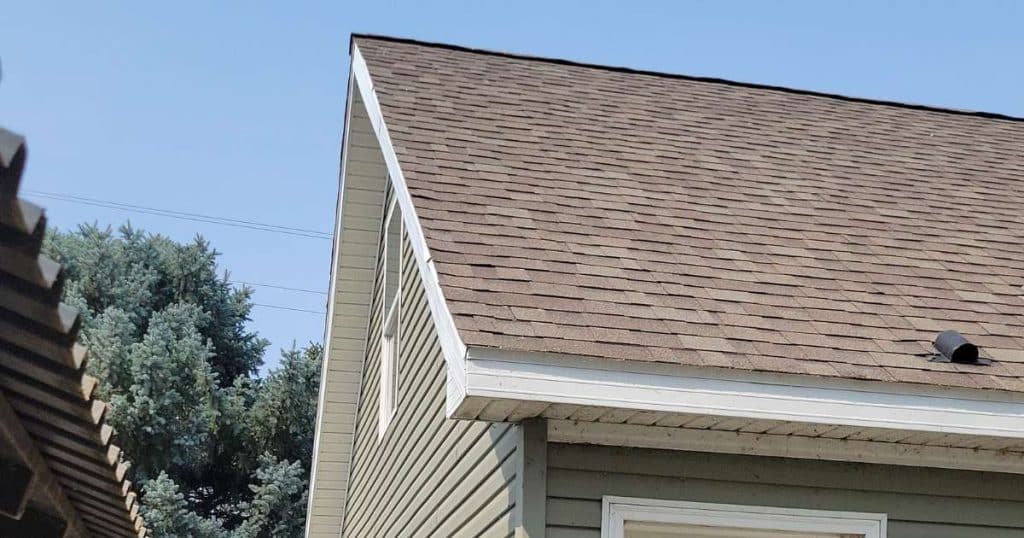Imagine waking up one morning in Rapid City, SD, after a particularly harsh storm. You step outside and notice shingles scattered across your yard, and your heart sinks.
You know it’s time to call in a professional to repair or replace your roof, but with so many options, how do you choose the right roofing contractor?
The stakes are high – a reliable roofing contractor can save you from future headaches and expenses. This guide will walk you through the essential steps to ensure you select the best contractor for your roofing needs in Rapid City, Sioux Falls, and Spearfish, SD.
Why Choosing the Right Roofing Contractor Matters
Choosing the right roofing contractor is crucial for ensuring the durability and safety of your home. A reliable roofing contractor provides a quality workforce, uses top-notch materials, and stands by their work with warranties. In contrast, a poor choice can lead to substandard work, frequent repairs, and higher costs over time.
Tips for Choosing a Reliable Roofing Contractor
Check for Proper Licensing and Insurance
One of the first steps in selecting a good roofing contractor is to verify that they have the appropriate licensing and insurance. In South Dakota, roofing contractors should be licensed to ensure they meet state standards and regulations. Additionally, insurance is vital to protect you from liability in case of accidents or damage during the project. Whenever you hire a contractor, make sure to request documentation of their insurance and license.
Benefit
Shields you from responsibility for mishaps or damage.
Ensures contractor meets state standards and regulations.
Look for Local Experience
A contractor with local experience is familiar with the specific weather conditions and roofing needs in Rapid City, Sioux Falls, and Spearfish, SD. Local contractors are also more likely to be aware of local building codes and regulations, ensuring your roof is up to standard. Moreover, local experience often translates to established relationships with suppliers and a reliable track record in the community.
Benefit
Established local reputation and relationships with suppliers.
Familiarity with local weather conditions and needs.
Knowledge of local building codes and regulations.
Evaluate Their Reputation

A contractor’s reputation speaks volumes about their reliability and quality of work. Examine internet reviews from sites such as Yelp, Google, and the Better Business Bureau (BBB). Additionally, ask the contractor for references from previous clients. Get in touch with these references to find out about their impressions of the contractor’s work and their experiences. A strong reputation is a good indicator of a reliable roofing contractor.
Benefit
Offers real client experiences and satisfaction levels.
Provides insights into the contractor’s reliability and quality.
Get Detailed Written Estimates
- Before making a decision, obtain detailed written estimates from at least three different contractors. These estimates should include the scope of work, materials to be used, project timeline, and total cost. Comparing these estimates allows you to understand the market rate and ensure you are getting a fair deal. Estimates that are much less than others should be avoided as they may represent inferior components or expertise.
- Benefit
- Helps you understand the market rate.
- Ensures you are getting a fair deal.
- Protects against subpar materials or workmanship.
Ask About Warranties
Warranties are a critical aspect of any roofing project. A reliable roofing contractor will offer warranties on both materials and workmanship. Material warranties are typically provided by the manufacturer and cover defects in the roofing materials. Workmanship warranties, on the other hand, cover installation errors. Ensure that you get both types of warranties in writing and understand their terms and duration.
Benefit
Ensures coverage for defects and installation errors.
Provides peace of mind and protection.
Review Their Portfolio
Reviewing a contractor’s portfolio of past projects can give you a clear idea of their capabilities and quality of work. Request to see images or visit finished projects that are comparable to yours. Pay attention to the details, such as the neatness of the installation and the quality of the materials used. A diverse portfolio showcasing various roofing types and styles is a good sign of a contractor’s experience and expertise.
Benefit
- Gives a clear idea of the contractor’s capabilities.
- Allows assessment of installation quality and materials used.
Communicate Clearly
Effective communication is essential for a smooth roofing project. Choose a contractor who communicates clearly and promptly, answering your questions and addressing your concerns. Good communication helps ensure that your expectations are met and that any issues are resolved quickly. Establishing clear communication channels from the beginning can prevent misunderstandings and keep the project on track.
Benefit
- Ensures smooth project execution.
- Helps meet expectations and resolve issues quickly.
Avoid Storm Chasers
After a severe storm, it’s common for out-of-town contractors, known as “storm chasers,” to flood the area offering quick repairs. While some may be legitimate, many provide subpar work and disappear once the job is done, leaving you with no recourse for any issues that arise. Instead, choose a local contractor with a proven track record in your community. Local contractors are more likely to stand by their work and be available for future maintenance.
Benefit
- Reduces risk of subpar work.
- Ensures contractor is available for future maintenance.
Discuss Payment Terms
Understanding the payment terms before the project begins is crucial. A reliable contractor will not ask for full payment upfront. Instead, they will have a clear payment schedule based on project milestones. Be wary of contractors who demand large deposits or full payment before the work starts. Agree on a payment plan that works for both parties and ensures that you have leverage if issues arise during the project.
Benefit
- Protects your financial interests.
- Ensures leverage if issues arise during the project.
Verify Their Certifications
Certifications from roofing manufacturers or industry associations indicate that the contractor has received specialized training and adheres to industry standards. These certifications can provide additional peace of mind regarding the contractor’s expertise and reliability. Ask the contractor about their certifications and verify them with the issuing organizations.
Benefit
- Indicates specialized training and adherence to industry standards.
- Provides additional peace of mind about the contractor’s expertise.
Typical Errors to Avoid in Roofer Selection
Choosing the Lowest Bid
It might be tempting to go with the lowest bid, but this often leads to poor workmanship and low-quality materials. Investing in a reputable contractor might cost more upfront but saves money in the long run.
Solution
Focus on value rather than cost. Consider the quality of materials and workmanship over price alone.
Not Checking References
Failing to check a contractor’s references can lead to hiring someone with a history of poor performance.
Solution
Always ask for and verify references from past clients to ensure the contractor has a positive track record.
Fail to Get a Written Contract
Verbal agreements can lead to misunderstandings and disputes. A written contract clearly outlines the scope of work, payment terms, and other critical details.
Solution
Ensure you get a detailed written contract before any work begins.
Ignoring Communication Issues
A lack of interaction might result in misinterpretations and unfulfilled expectations. If a contractor is difficult to communicate with during the initial stages, it’s likely to continue throughout the project.
Solution
Choose a contractor who communicates clearly and promptly.
FAQs
Which American roofing business is the best?
The best roofing company varies by region and individual needs. It’s important to research and find a local company with a strong reputation and proven track record.
How to choose a roofing contractor?
To choose a roofing contractor, check for proper licensing and insurance, evaluate their reputation, get detailed written estimates, and review their portfolio. Ensure clear communication and verify their certifications.
How to pick a roofing contractor?
Picking a roofing contractor involves researching local experience, evaluating their reputation, checking their licenses and insurance, and getting detailed written estimates. Avoid storm chasers and ensure they offer warranties.
What more should I be aware of before hiring a contractor for roofing?
Before hiring, ensure the contractor provides clear communication, offers warranties, has a good reputation, and presents a detailed written estimate. Verify their local experience and certifications.
When to replace the roof?
Typically, a roof needs replacement every 20-25 years, depending on the material and environmental conditions. Look for signs such as leaks, missing shingles, and visible damage to determine if replacement is needed.
How much does a roofer charge per square?
The cost per square (100 square feet) can vary widely based on materials and job complexity. On average, it ranges from $300 to $1,000 per square. Obtain numerous quotes at all times so you may compare costs and services.
Last but Not Least
Choosing the right roofing contractor in Rapid City SD, Sioux Falls SD, and Spearfish SD is essential for ensuring a durable and reliable roof. Follow these tips to make an informed decision and pick a contractor who will deliver quality work and peace of mind. For expert roofing services, contact Wegner Roofing & Solar today.
For more roofing insights, check out our blog on Top 10 Roofing Trends for 2024 in MT
By following these guidelines, you can confidently choose a roofing contractor who meets your needs and standards. Wegner Roofing & Solar is here to assist you every step of the way.



